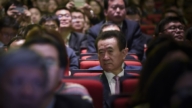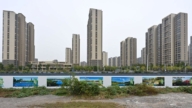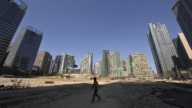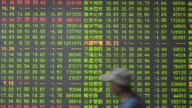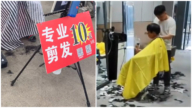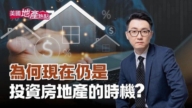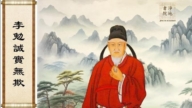【新唐人2014年07月29日讯】“北京大学”日前发布了一个调查报告,报告显示,中国顶端1%的家庭拥有全中国三分之一以上的财富,而底层四分之一的家庭,仅拥有全国1%的财富。分析指出,中国贫富两极分化,社会阶层的对立与动荡将越演越烈,中国的经济已濒临崩溃。
7月25号,北京大学中国社会科学调查中心发布《中国民生发展报告2014》,报告指出,中国贫富两极分化已十分严重。
其中显示,2012年中国顶端1%的家庭,拥有全国三分之一以上的财产,而底层25%的家庭,拥有的财产总量仅在1%左右,中国家庭净财产“基尼系数”已达0.73。
“基尼系数”是居民收入分配公平程度的指标,数值在0到1之间,越高显示公平程度越低。
中国金融智库研究员巩胜利:“我看了这个报告,我觉得这个核心就是中国社会在加剧分化,穷人更穷,富人更有钱。它说了一些中共从来没有说过的大实话,这种实话是用数据把它表现出来的。”
旅美中国社会问题研究人士张健:“25%的老百姓加在一起,却占有了全中国的财富的1%,就证明了中国有更多贫困的人,他们生活在贫困线之下,这些人不单是没有温饱、没有人权、没有被尊重的权利、同时这些人也是中国在所谓改革开放以来,最大的受害者,他们贡献了所有的一切,但是他们得到的只是苟延残喘。”
这个报告还显示,有家庭成员在体制内工作的家庭财产水平,明显高于在体制外工作的家庭,而在体制内工作的家庭财产的增长幅度,也明显高于体制外家庭。
张健:“这样一个政府执政,它不按宪法办事、它不按市场经济规律办事、中国的经济必然就走入到今天这样一个模式当中,越来越多的权贵形成了利益集团,他们掌控了所有国家资源、掌控了人民的言论与生杀大权,而且他们不单纯是将今天的中国经济搞垮了,我们未来的,比如说空气、土地、所有的矿产,这些资源也会被中国的特权们瓜分干净、摧毁干净。”
中国金融智库研究员巩胜利指出,中国贫富两极分化很容易引起社会阶层对立,从而导致社会动荡。
巩胜利:“在这个报告下,我做了一个数据的统计和分析,中国目前,他说的占1%的家庭,在中国可能有5千万到8千万人,而中国最贫穷的那些人大概有5亿,这两个数字一对比,你就知道,它的矛盾以及激化点和冲突点。”
时事评论员龚平在博文中指出,中国最顶端家庭往往拥有巨大的隐形财富,如何估计他们的真实财富,是一个棘手的问题。他认为,“北大”的数据存在严重低估的倾向。
今年4月,美国“密西根大学”发布的研究报告显示,从1980年到2010年间,中国的“基尼系数”几乎扩大了一倍,中国的贫富悬殊水平已跃升全球第一位。
张健:“政治体制改革死亡的时候,中国几千年奠基下来的文化和中国所有的财富都会被中共的特权在一夕之间毁于一旦,经济、政治和百姓的生活、民生是密不可分的。有这样的体制,就会出现现在的情况,这是非常正常的,而且这种情况将持续蔓延不断恶化,直到中共倒台的那一天为止。”
草根经济博主王海滨也对《自由亚洲电台》指出,中国的分配不公归根到底还是体制问题,在这个体制下,贫富差距只会进一步扩大,中国的经济发展已经走向尽头。
采访/朱智善 编辑/陈洁 后制/李勇
Peking University: One Percent of Households Own 1/3 of China’s Wealth
A recent report from Peking University, issued their findings
of its survey, stating,
the top one percent of Chinese families, has more than one-third
of China’s wealth,
with the bottom 25 percent of families having only one percent
of assets in the entire country.
Analyses points out, the severe disparity between the two,
is likely to enhance any social unrest and class opposition.
Is China’s economy on the verge of collapse ?
July 25, China Social Science Research Center
of Peking University,
issued its China Family Panel Studies result of 2014.
It shows severe polarization between the rich
and the poor of China.
The studies show in 2012, the top one percent of Chinese
households, had more than one third of the national wealth,
and the bottom 25 percent of households had only one percent
of national assets.
China’s Gini coefficient has reached 0.73.
Gini coefficient is a gauge of inequality, between zero and one,
the higher the reading the more severe the inequality.
Chinese financial think tank researcher Gong Shengli:
“I read this report. I think the core issue is the increased
differentiation in Chinese society.
The poor have become poorer, whilst the riche
have certainly become richer.
It speaks of one great truth which the CCP has failed to mention.
The truth is manifested with in the data."
China’s social problems researcher Zhang Jian:
“25 percent of the population takes one percent of China’s wealth,
it proves that China has more poor people.
They live below the poverty line, have no food and clothing,
no human rights, no rights to be respected; they are the biggest
victims in China since the so-called reform and opening up.
They have contributed everything only in exchange of
just lingering on."
The surveys also show families with members working within
the system, have significantly higher assets than those
working outside the system.
Likewise, the growth of assets is also higher for
within-the-system families than outside-the-system families.
Zhang Jian: “China’s economy is surely falling into such a
way, that the regime ignores the Constitution and follows
no market economy and law.
Many more elite groups are controlling the national sources.
They control public opinion and the life and death of the people.
They have not just ruined China’s economy. They have also
deprived the air, the land, the resources from us
and destroyed them completely."
Gong Shengli indicates the extreme inequality will easily cause
social class opposition, which subsequently leads to social unrest.
Gong Shengli: “Based on this report, I did a statistical analysis
of the data.
There are about 50 to 80 million Chinese, accounting for
one percent of households,whereas there are about 500 million Chinese
under the poverty line. These figures truly reflect the huge contradictions within China’s system, and why such intense conflict and
divide exists."
Commentator Gong Ping indicated in his blog, that the very rich
Chinese households tend to own stealth wealth
which is hard to estimate.
He believes these surveys are seriously underestimating
the true wealth.
In April this year, a research paper from University of Michigan
showed China’s Gini coefficient, had nearly doubled
between 1980 and 2012.
“Income inequality in today’s China is among the highest
in the world."
According to University of Michigan sociologist Yu Xie.
Zhang Jian: “When the political reform in China finally dies,
the thousands of years of culture and wealth in China,
will die with it.
The livelihood is inseparable from the economy and the politics.
This regime has made it this way and the situation will only
continue to worsen until the downfall of the Communist regime."
Grassroots economy blogger Wang Haibin told Radio Free Asia,
that the fundamental issue in China’s inequality exists
within the system.
Under the current Communist regime, the inequality will only
expand further as the economic development in China
has come to an end.
Interview/Zhu Zhishan Edit/ChenJie Post-Production/LiYong


